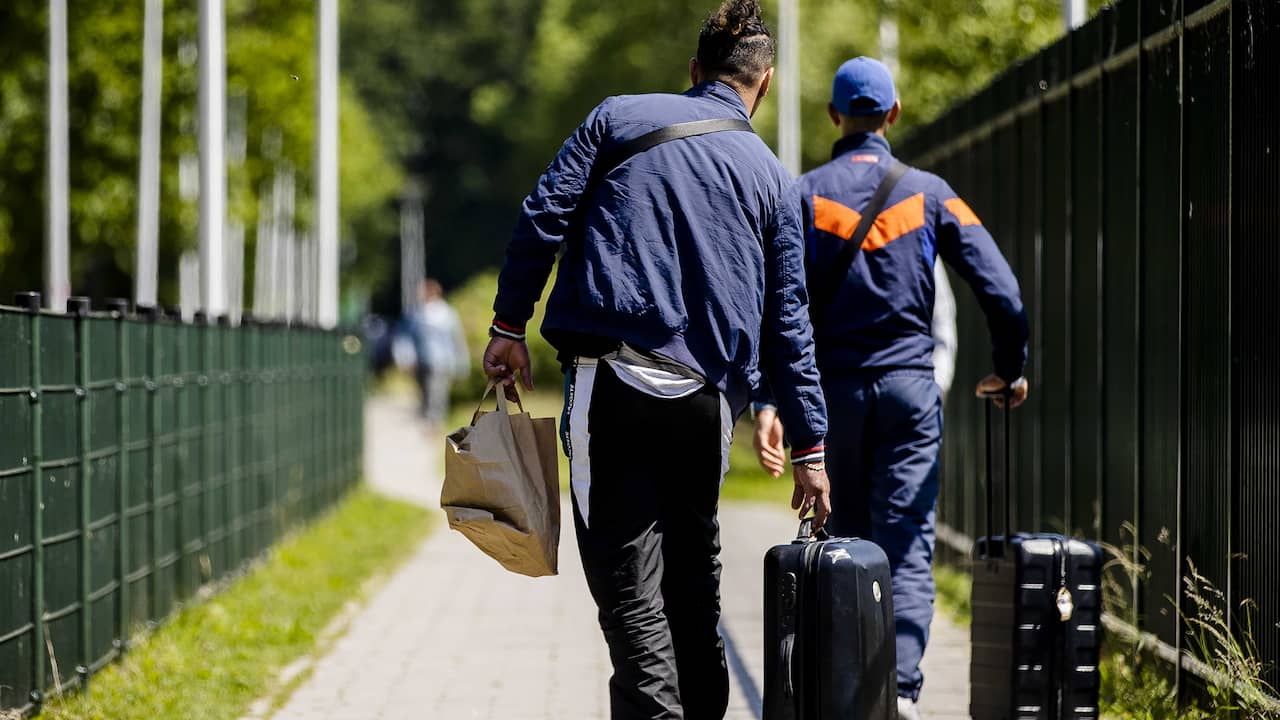Four weeks ago, the security regions were asked by the government to move 7,500 status holders from asylum seekers centers (AZCs) to (temporary) homes as soon as possible. Whether that will succeed is anything but certain, according to conversations that NU.nl conducted with security regions.
The government asked the security regions to arrange the accelerated relocation within six weeks. But that turns out to be quite a task four weeks later. This is due to a shortage of houses.
There is extra pressure on the demand because the period in which the security regions free up extra places for asylum seekers (the crisis emergency shelter) lasts until 1 October. The security regions indicated last week that they would no longer do this after that date. Because the crisis emergency shelter is closing, the places that status holders now keep ‘occupied’ in asylum seekers’ centers will be needed even more in the future.
Why there are still many status holders in asylum seekers’ centers
- Status holders are people whose asylum application has been approved, and who are therefore allowed to stay in the Netherlands.
- Normally, the national government determines every six months how many status holders a municipality must place. That depends on how big the municipality is. Whether status holders, like other groups, are given priority on social housing is up to the municipality.
- However, due to a shortage of housing, the placement of status holders has come to a standstill.
- As a result, there are now more than 15,000 status holders in asylum seekers’ centers. That’s about a third of all the places out there.
- Result: overcrowded asylum seekers’ centers and problems at the application center in Ter Apel.
–
–
–
‘Status holders are not the only ones we want to do something for’
Many security regions are already working hard to accelerate the placement of status holders. For example, the regions of Zeeland, Noord-Holland-Noord and Drenthe say that they will place all status holders or that they are on track.
But it’s not going anywhere yet. The Kennemerland safety region, for example, has not yet accommodated a single status holder anywhere. “It is not yet clear how the accelerated placement will be distributed among the municipalities, when it will start and at what pace,” says a spokesperson for Kennemerland.
Other security regions have started, but do not know whether it will be possible to find a place for everyone. For example, the Gelderland-South security region had placed 57 of the total of 183 status holders on 19 June. Whether everyone can be assigned a house, according to a spokesperson, depends on “many factors and different organizations”.
“The assignment is more difficult than it may sound,” says a spokesperson for the Central and West Brabant Security Region. “We’re working hard, but we’re going to have a hard time reaching the target.” According to her, the status holders are “not the only group that we as a municipality want to do something for.”
Difficult assignment due to ‘critical’ shortage of houses
Haaglanden safety region “does what it can”. That is what a spokesperson for the municipality of The Hague says on behalf of the region. Nevertheless, Haaglanden will probably not be able to meet the goal of 315 status holders in the short term. “The shortage of social housing is too acute for this.”
The spokesperson says they are continuing to look for accommodation. She could not yet estimate whether it would be possible to give everyone a place in the long term.
The municipality of Utrecht came up with what they themselves called an “unorthodox solution”. In the coming weeks, almost all social rental homes that become available will be made available to status holders. The Utrecht Security Region says that the municipalities are “fully engaged in achieving the target.” But whether it really succeeds to accommodate all 828 status holders at an accelerated pace, the spokesperson does not know.
‘Mop harder than the tap runs through’
The acceleration is not yet sufficiently visible, was the conclusion of State Secretary Eric van der Burg on Wednesday. It should be ready before October 1, he said. “Otherwise a bigger problem will arise instead of a solution of the problem”.
At the same time, the number of status holders is also still increasing. According to Van der Burg, it is mopping with the tap open. “We have to mop harder than the tap flows.”
The parties involved will meet more often in the near future to try to solve the asylum crisis. But according to Van der Burg, that solution is not settled “today or tomorrow”.
This is how this article came about:
- NU.nl approached all 25 security regions in the country.
- We spoke to eighteen security regions by telephone and e-mail. Eight of them indicated that they had no general idea and referred them to the municipalities.
–
–
–
NU.nl is curious about your opinion about this article. Click here to complete a one minute questionnaire. Thank you very much!
–


